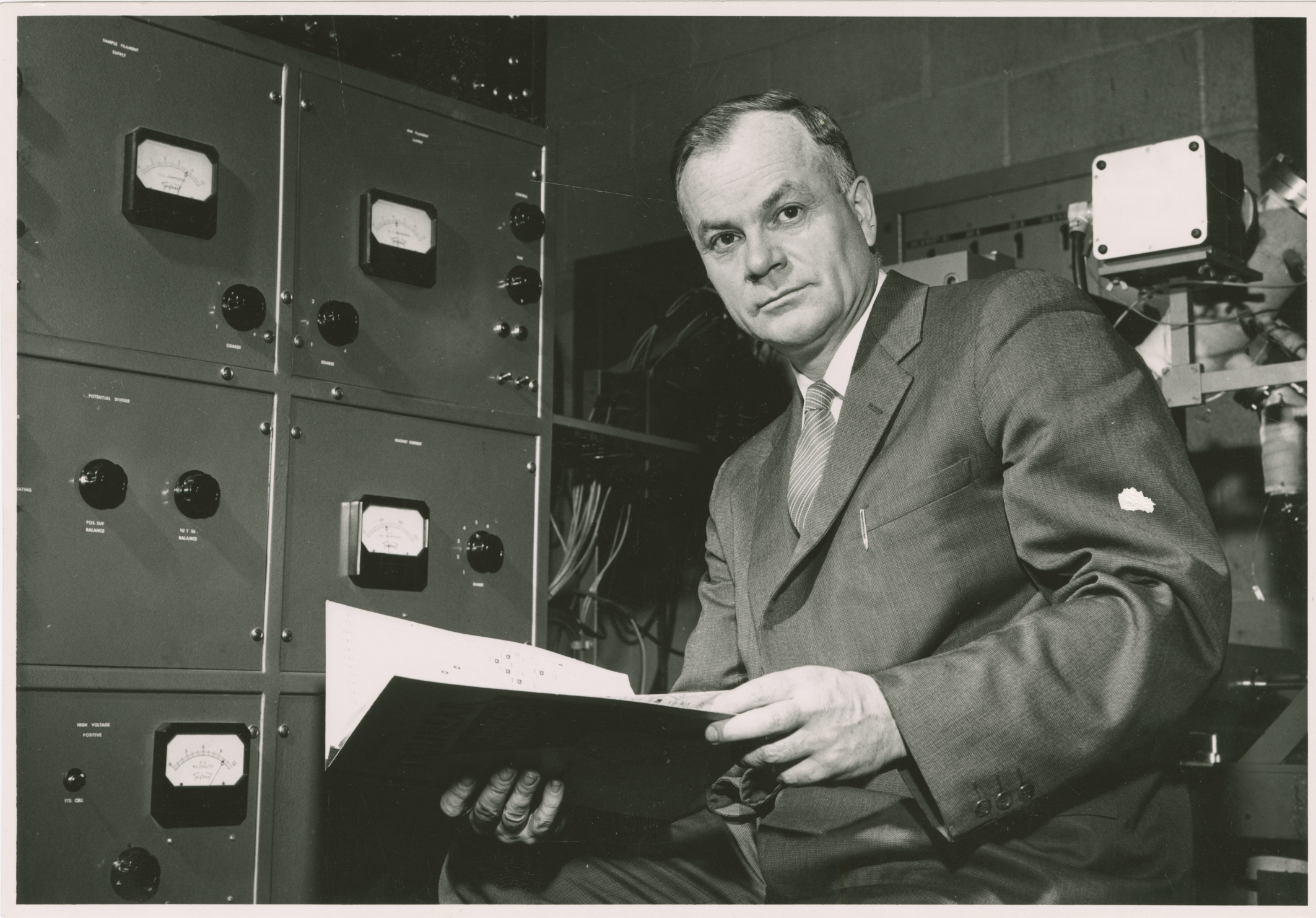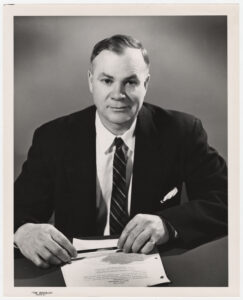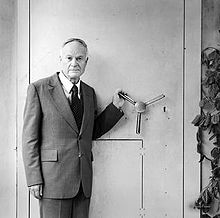Dr. Harry Thode

Harry Thode led McMaster University through a significant era of growth and played a key role in defining modern-day McMaster. Thode was born in Dundurn, Saskatchewan and received both his B.Sc. and M.Sc. from the University of Saskatchewan. He received his PhD in physical chemistry from the University of Chicago in 1934.
Thode became an associate professor of chemistry at McMaster in 1939. He moved up the ranks, becoming a professor, director of research, head of chemistry, vice-president of the University, and president and vice -chancellor of the University in 1961. He retired in 1972 after pioneering many ideas and visions for the future of the school.
Thode constructed the first mass spectrometer in Canada, which was used to conduct isotopic measurements. His wartime research was key in the development of McMaster University as a research institution. Thode’s legacy lives on today, as McMaster University has been named Canada’s most research-intensive university for four consecutive years.
During WWII, the mass spectrometer was used to accurately measure the abundances of uranium isotopes, as well as small samples of the fission gases xenon and krypton. Thode and his team carried out research on fission products to contribute to the Canadian nuclear program throughout the war, which demonstrated the ability of the mass spectrometer to identify stable and long-lived isotopes.
During the war, Thode took a leave of absence from McMaster to work on the Atomic Energy Project of the National Research Council in Montreal. This project was the Anglo-Canadian version of the United States’ Manhattan Project. The research from his work in isotope analysis was foundational in the development of the CANDU reactor and Canada’s nuclear energy industry.
 Thode conducted research on the uses of radioisotopes in medicine and helped establish a medical research department at McMaster in 1948. Alongside Charles Jaimet, Thode studied thyroid physiology and developed a radioactive iodine test for measuring thyroid activity. This was the first medical application of radioactive iodine in Canada. Today, the McMaster Nuclear Reactor produces radioisotopes of iodine used to treat cancer patients.
Thode conducted research on the uses of radioisotopes in medicine and helped establish a medical research department at McMaster in 1948. Alongside Charles Jaimet, Thode studied thyroid physiology and developed a radioactive iodine test for measuring thyroid activity. This was the first medical application of radioactive iodine in Canada. Today, the McMaster Nuclear Reactor produces radioisotopes of iodine used to treat cancer patients.
Thode’s later isotope research focused on geochemistry. His international reputation as a scientist grew to such a degree that he became one of two Canadian scientists able to obtain rock and soil samples from NASA’s first lunar expedition in 1969.

Under his direction, the McMaster Nuclear Reactor, arts complex, senior sciences and engineering buildings, student residences, and Health Sciences Centre were built. The McMaster Nuclear Reactor, which opened in 1959, was the first research reactor on a university campus in the British Commonwealth. He also founded McMaster’s world-renowned medical school, and in 1978, the H. G. Thode Library of Science and Engineering was opened in his name.
Thode has been honoured by governments and scientific societies around the world. He was made a member of the Order of the British Empire for his wartime contributions to atomic research. Thode was also a Fellow of the Royal Society and a Companion of the Order of Canada.
Blog